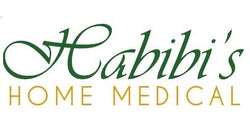At Habibis Durable Medical, we frequently receive inquiries about insurance billing for diapers and pull-ups. It's a complex issue with a nuanced answer: while we do bill Arkansas Medicaid and related PASSE programs (Summit, Arkansas Total Care, Empower, and CareSource) for these items, they are generally the only insurances that cover them. Despite the high demand for incontinence supplies among the elderly, Medicare does not cover diapers or pull-ups, offering coverage only for in-and-out catheters.
Understanding Incontinence Supplies
What Are Incontinence Supplies?
Incontinence supplies encompass a variety of products designed to manage bladder leakage. While diapers and pull-ups are the most commonly thought of items, incontinence supplies also include bladder pads like Poise, which range from thin pads for light leaks to larger, overnight pads, as well as men’s male guards.
Why Doesn’t Medicare Cover Diapers and Pull-ups?
This is a common question at Habibis Durable Medical. Unfortunately, we don't set the rules. However, we encourage our clients to reach out to their national representatives and senators to lobby for Medicare coverage of these essential items. If Medicare ever begins to cover incontinence supplies, we will be among the first to provide them.
For those whose insurance does not cover these products, our retail store, Habibis Home Medical, offers diapers and pull-ups without sales tax when provided with a prescription. This can save our patients a significant amount of money and our home delivery service helps avoid the inconvenience of picking up bulky boxes in public.
Coverage by Arkansas Medicaid and PASSE Systems
Items Covered
Arkansas Medicaid and the PASSE systems cover a range of incontinence-related items beyond diapers and pull-ups. These include:- Bedside Commodes: For patients who cannot reach the bathroom or do not have a bathroom nearby.
- Catheters and Drain Bags: Essential for some incontinence patients.
- Gloves: Used by caregivers for diaper and pull-up changes.
- Diaper Change Ointment: Specifically, Periguard barrier cream is covered, which should be used with every diaper or pull-up change to prevent issues.
Items Not Covered
Despite the range of items covered, there are several incontinence-related supplies that are not covered by Arkansas Medicaid, including:- Wipes: Neither baby wipes nor adult wipes have an HCPC (billing) code, making them ineligible for coverage. However, our retail arm, Habibis Home Medical, can provide them tax-free with a prescription.
- Oversized Pull-ups: Pull-ups over 3X in size often cost more than the reimbursement amount. In such cases, we recommend using a covered bladder pad instead.
- Raised Toilet Seats: While somewhat obscure, these items are sometimes requested but are generally not covered by Arkansas Medicaid.
How to Get Incontinence Supplies Covered by Arkansas Medicaid
To obtain incontinence supplies covered by Arkansas Medicaid, patients must typically provide a prescription from their healthcare provider. This prescription ensures that the items are medically necessary and meet the criteria set by Medicaid.
Steps to Follow:
- Consult Your Healthcare Provider: Discuss your incontinence needs with your doctor and obtain a prescription for the required supplies.
- Contact Habibis Durable Medical: Provide us with your prescription and Medicaid details.
- Arrange for Delivery: We can deliver the supplies directly to your home, saving you the hassle of visiting the store.
Advocacy for Broader Coverage
At Habibis Durable Medical, we believe that more should be done to support those with incontinence needs. While Arkansas Medicaid and PASSE programs provide crucial coverage, the lack of support from Medicare leaves a significant gap, particularly for the elderly who may not qualify for Medicaid.
What You Can Do
- Reach Out to Legislators: Contact your national representatives and senators to advocate for Medicare coverage of incontinence supplies.
- Join Advocacy Groups: Engage with organizations that lobby for better coverage and support for incontinence supplies.
- Stay Informed: Keep up with changes in Medicaid and Medicare policies to understand what is covered and how you can access the supplies you need.
Conclusion
Incontinence is a common issue that affects many people, particularly the elderly. While Arkansas Medicaid and PASSE programs provide essential coverage for diapers, pull-ups, and other related supplies, Medicare does not. At Habibis Durable Medical, we strive to support our patients by providing the necessary supplies through Medicaid and our tax-free retail options for those without coverage.
For more information on how to get your incontinence supplies covered, or to discuss your specific needs, contact us at Habibis Durable Medical. We are committed to helping you manage incontinence with dignity and ease.






